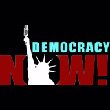Bolivia: A Profound Breakdown of Communication with Latin America

Image: Flag of UNASUR
Article originally published by: coha.org
This analysis was prepared by COHA Director Larry Birns and COHA Research Associate Raylsiyaly Rivero
With UNASUR having just met in Santiago, Chile to discuss the escalating crisis in Bolivia, the stage is set for a huge surge of autonomy for Latin America, owing to a series of newly auto-generated, self-managed and extensive regional initiatives. In an extraordinary shift from a decades-long hegemonic status-quo during which Washington exercised de facto hemispheric supremacy, the U.S. role has dramatically diminished, at times becoming almost irrelevant. In fact, even though U.S. Assistant Secretary of State for Western Hemisphere Affairs, Thomas Shannon, is a relatively enlightened figure who at times has stressed a rational dialogue between Venezuela, Bolivia, and Washington, U.S. attention toward the region, when at all focused, has been willful, narrow-minded, and self-absorbed.
Once installed in office, the Bush administration found itself distracted from Latin American issues by the Iraq war, giving the region the required space to develop its own consensus on regional developments, regardless of Washington’s ululations. This has heightened the ability of hemispheric leaders to halt or reverse some of the most imprudent U.S. policies that had gained ascendancy starting in the Clinton administration, and which then blossomed under Bush. Nevertheless, despite all signs to the contrary, the Bush administration continues to act as if its fiat still is supreme in Latin America, when, in fact, it has rapidly shrunk. An example of this is the revival of the Fourth Fleet as a Washington policy riposte, and with it the pretense of gunboat diplomacy on the ready, after a half-a-century of the fleet being dismasted, and the use of the “terrorism” factor to reassert an authority that is no longer exercisable.
Washington cannot continue to conduct itself as if it had a backyard in which Latin America could be firmly found. The U.S. has been absent from the region for far too long to attempt to roll back the tide of anti-private capital, anti-U.S. sentiment that has swept over much of the region. In its stead, the region yearns for a “third way” and for change. In fact, during this period of unilateral neglect, due to Iraq, the hemispheres started going its own way, coming up with new formulas in its quest to diversify relationships, pluralize its world trade contracts and engage in constructive relations across the board, including forming ties to what Washington, at the time, sees as “rogue” nations. During this period of transition, more left-leaning presidents were being elected president than ever before in the Americas’ history, a raft of regional organizations (which did not include the U.S. as a member) were formed, the region suddenly saw a remarkable rise in its importance on the world stage as its metal and agricultural commodities increased in relevancy and value during the current fuel and food crisis, and new links emerged between Latin America and India, China, Russia, and the EU.
The Breakdown of Bilateral Relations
The latest U.S. flare-up with Bolivia most likely could have been avoided by a non-pro forma U.S. statement categorically declaring that this country would neither recognize nor have any form of relationship with the Santa Cruz-led breakaway departments in the Europerized, somewhat white and wealthy eastern sector of the country, just as Brazil and the other Latin American nations saw fit to do. Instead, for a number of months U.S. Ambassador Philip Goldberg assumed the role of quarterback at meetings with the opposition, discussing strategies with his team. He did this even though the opposition figures had clearly called for extra-constitutional actions against democratically-elected Evo Morales, even his ouster, and in spite of the fact that his widespread support was affirmed in July’s recall elections. (For more information, see COHA Research Associates Chris Sweeney and Jessica Bryant’s article, “Bolivia in Crisis”).
Washington claims that Goldberg’s meetings with the opposition were protocolic and conducted during routine visits to the secessionist regions. It also insisted that he categorically denies La Paz’s accusations of his signaling support behind the opposition, let alone any involvement in secret plots against the central government. Yet, complicating matters in the Andean country is the fact that any number of U.S. ambassadors throughout Latin America –particularly dating back to the inauguration of the present U.S. administration– have a lengthy record of intervention in the domestic affairs of the countries to which they have been accredited. It is no secret that the State Department has had a long history of inappropriate and often covert intervention in Latin American internal affairs, often making use of a Reagan-era institutional facility known as the National Endowment for Democracy. Goldberg’s predecessors, Manuel Rocha and David Greenlee, persistently inserted themselves into Bolivian domestic issues. This scenario often involved U.S. ambassadors on station elsewhere in the region, where they openly threatening the end of remittances, trade benefits, or U.S. development assistance to a given country, if a leftist regime was elected to office –El Salvador and Nicaragua would be some examples of these. They also have pressured conservative political parties in such countries as Bolivia, El Salvador and Nicaragua to unite behind one candidate in order not to split the vote, allowing the otherwise weaker leftist candidate to ship into office.
Ultimately, a historical memory was invoked of humiliation, plunder and such transgressions as the Chaco war and a spate of U.S.-backed military Juntas under which the largely aboriginal majority of Bolivians have suffered as a result of self-serving past U.S. policies. Such acts of arrogance and intolerance that Washington recurrently has visited upon the region, served to incite the unbridled passions of a man with the Brobdingnagian temper of Hugo Chávez and even the more self-disciplined Evo Morales.
Washington Diplomacy or Lack of it
In Washington’s eye, there always has been a distinction to be made between Evo Morales and his Venezuelan counterpart. While they are very different in temperament and style, the two share some major similarities, one of them being a sense of loyalty and solidarity with one another. What has made them into slippery fish for the Bush administration to handle is that no matter how garish may be their personal stylistic flaws, neither Chávez or Morales can in any manner be condemned for any democratic lapses, lack of human rights observance, nor mistreatment nor abuse of their citizens. You may consider them confrontational non-conformists, or condemn them for their non-adherence to traditional codes of diplomatic behavior, but you cannot cite them for being antipathetic in their behavior towards their own people. Surely there was enough here of democratic substance with which the U.S. could do business.
It is clear that the U.S. remains largely oblivious to the multifaceted developments that are taking place in an increasingly self-confident Latin America. Washington would do well to introduce a sense of perspective on Iraq and terrorism, and turn its attention once again to its vital national interests in this hemisphere. These issues go far beyond drugs, terrorism and security concerns. If the U.S. is to play a constructive role there, it must architect a new relationship with the region that can be deemed credible and taken to heart. Its investment must be more than just a Parthian shot aimed at a token act of respect for their sovereignty and must display an earnest concern for the area’s well-being.
UNASUR’s Debuting Role
If such a re-positioning does not happen soon, it may well be too late for Washington to develop cooperative and mutually beneficial policies. Latin American-led trade agreements such as the Bolivarian Alternative for the Americas (ALBA) could appear more sensitive and better adapted to regional well-being than any U.S.-crafted free trade agreement with nations that are too weak, like Costa Rica and Panama, to defend their authentic self-interests against subsidized U.S. farm products. Also, the fledgling Union of South American Nations (UNASUR) joins the Organization of American States as a multilateral, democratic body capable of facilitating regional integration and conflict resolution. The difference is, of course, that the former does not include the U.S. as a member. It is this stunning difference that ultimately could lead to the supplanting of the OAS by UNASUR a development that would be sure to lead to the return of Cuba to a major regional body. At its September 15 emergency meeting on the Bolivia crisis in Santiago demonstrates, the leaders of this multilateral organization are capable of engaging in constructive and balanced dialogue that is certain to profoundly affect the separatists. Refusing to fall prey to the mudslinging in which U.S. diplomacy frequently engages, Ecuadorian President Rafael Correa dismissed probing by the press into the possibility of covert U.S. intervention in Bolivia, a charge that Correa himself was not making in other contexts, and he reiterated the support of member states to the restoration of order and preservation of unity in Bolivia.
Washington and the Bolivian Blow Up
The near breakdown of relations between Washington and La Paz in the midst of the Bolivia crisis, perfectly exemplifies the disastrous consequences of the inherent intolerance and disrespect that the U.S. has long exhibited towards the region. Despite La Paz and Washington’s ideological differences, Assistant Secretary Shannon, while being a very significant improvement over his two most recent predecessors, Otto Reich and Roger Noriega, might have used this opportunity to more clearly indicate a U.S. commitment to the spirit as well as the letter of democratically-elected governance in the region, and that any form of separatism would be condemn. More vigorous support of Morales and the central government in the face of the reckless and greedy same plan of the pro-autonomy leaders in Bolivia might have provided a compelling reason for the secessionists to preserve order and avoid the violence which, tragically, has already claimed upwards of thirty lives.













